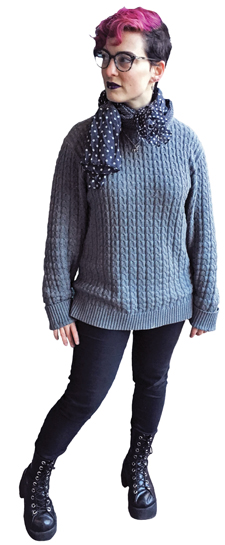Since 1978, the American Literary Translators Association (ALTA) has been a source of community and support for literary translators. Known for its annual conference, which will take place this October in Oakland, California, the organization awards three annual prizes for published books, along with several fellowships for emerging translators. Beginning this year, ALTA will also administer the Cliff Becker Book Prize, which is the only U.S. prize that offers publication of a full-length book of poetry translated from any language into English. The annual award includes $1,000 and publication by White Pine Press, which administered the prize since its inception in 2012; submissions are open from May 1 to July 1. Erica Mena, ALTA’s executive director, spoke about taking over the prize and creating resources for translators.
 What does it mean that ALTA will now administer the Cliff Becker Prize?
What does it mean that ALTA will now administer the Cliff Becker Prize?
The administration of the award involves putting together the submissions, the schedule, and all the publicity; making sure we get the name out there so we get good manuscripts; getting the judges and making sure that they have all the materials and support they need. It requires a certain amount of time and administrative work that White Pine wasn’t set up to handle. Since we already administer a number of awards, it’s easy for us to expand that operation.
How else is ALTA helping more translations get published?
Last year we launched the Mentorship Program for emerging translators working in Polish, French, and Catalan. We pair an established translator with an emerging one, and they spend a year working together on a book-length project. The goal is to produce finished manuscripts, and we hope that we can also assist in finding a publisher for those works. We have publishers that work with ALTA that will take careful first reads of them.
Were those languages chosen because they are underrepresented in English translation?
This is actually a problem that we come up against with a lot of our programs. We look to external sources—usually government agencies like the Book Department of the French Embassy or the Polish Cultural Institute New York—and ask if they would be interested in funding a program. Certain languages continue to be well represented because of government support. The languages that don’t have support, either because their governments don’t have the funding or because they don’t have governments at all—the diaspora languages, stateless languages—continue to not be brought into English. Part of my agenda is to create resources for translators working in these languages. This year we’ve set aside one of our Travel Fellowships, which is now named the Peter K. Jansen Memorial Travel Fellowship, to be awarded to a translator of color or a translator working in a stateless or diaspora language. It’s a step toward supporting marginalized translators and literatures.
What do the travel fellowships provide?
Fellows each receive $1,000 and registration for the ALTA conference, where they give a reading and meet with established translators who introduce them to others working in their region, language, or genre. A lot of emerging translators in the past couple of years have left with book contracts. We try to make those connections possible.
What resources do you recommend for translators who are just starting out?
The U.S. literary translation community is relatively small and intimate, so I would say get to the ALTA conference if you can. It’s a great way to meet people who are interested in the same things that you are.
Cat Richardson is the managing editor of Bodega Magazine and a poetry editor at Phantom Books. Her work has appeared in Ploughshares, Narrative, Tin House, and elsewhere.








